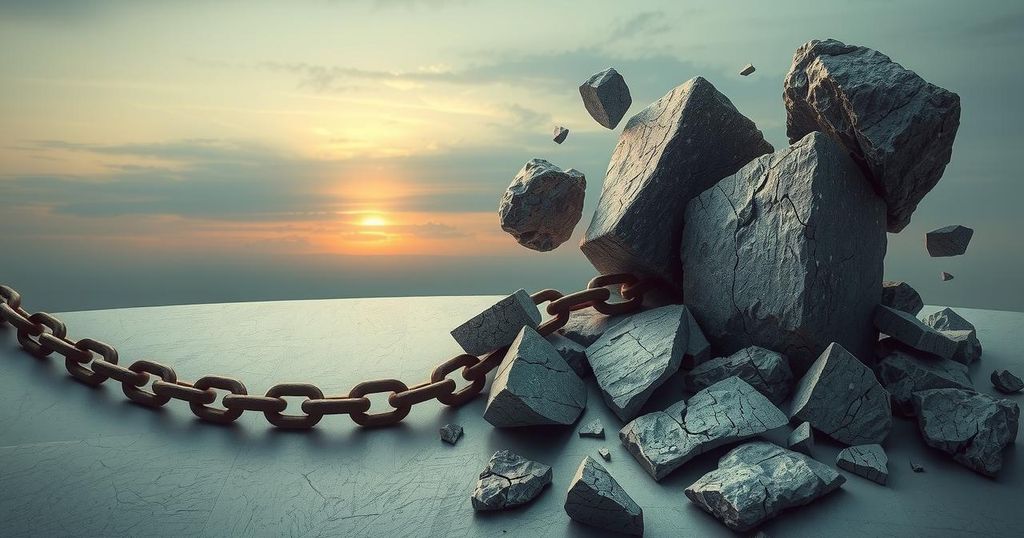Rwanda’s Disruption of Stability in the Democratic Republic of the Congo

Rwanda’s interference in the eastern Democratic Republic of the Congo has resulted in prolonged violence and instability, often justified under the pretext of battling Hutu militias. President Kagame’s regime has systematically undermined Congolese governance while exploiting its resources. The international community’s tepid response enables ongoing aggression, necessitating urgent recognition of Rwanda’s disruptive role to promote peace in the region.
Rwanda has significantly undermined the stability of neighboring Congo since 1996, a trend described as a strategic effort to maintain Congo in a weakened state. This violence, often attributed to regional instability and ethnic conflict, overlooks Rwanda’s deliberate actions and the influence exerted by President Paul Kagame to control Congolese leadership.
Kagame, viewed as a stable leader by Western nations, has played a dual role by asserting power regionally while seeking international favor. The Rwandan regime’s manipulation of Congolese politics dates back to the murder of Laurent Kabila, whose son succeeded him and continued closer ties with Kigali.
Rwanda’s involvement in the Congolese conflict includes backing rebel groups like the March 23 Movement (M23), which recently regained territories in Goma. Kagame has denied direct involvement, yet evidence from multiple investigations suggests otherwise. When international scrutiny arises, these groups are integrated into Congo’s military, only to later resurface under different identities.
Rwanda’s aggression toward Congo, a vastly larger neighbor, is often justified by claims of combating the FDLR, a Hutu militia linked to the Rwandan genocide. However, this justification lacks a solid foundation and serves to mask Rwanda’s true ambitions, primarily centered around extracting valuable minerals.
Congo is rich in minerals essential for modern technology, with reports indicating that a large portion of its gold is smuggled through Rwanda. This resource plunder has swelled aid flows to Rwanda while funding Kagame’s authoritarian regime. Rwanda’s strategy includes stymying any potential reforms in Congo that would threaten Kagame’s hegemony.
The international community’s response has been inadequate, often ignoring Rwanda’s disruptive role to maintain an image of partnership. Rwanda has mastered leveraging Western sentiments about the 1994 genocide to deflect criticism and position itself as a peacekeeping ally. Meanwhile, Rwandan-sponsored rebels are contributing to ongoing violence against peacekeeping forces in the region.
Congo requires authentic leadership and support free from the shadow of Rwandan manipulation. A legitimate focus on fostering stable institutions untainted by external sabotage is crucial for the welfare of the Congolese people. The violence in eastern Congo must be recognized as a direct consequence of Rwanda’s interference to realize sustained peace in Central Africa.
The ongoing conflict in eastern Congo is deeply intertwined with deliberate actions from Rwanda, particularly under Kagame’s regime. This aggression perpetuates a cycle of instability, undermining potential governance reforms in Congo. A global acknowledgment of Rwanda’s role is pivotal for fostering long-term peace and allowing both Congolese and Rwandan people to pursue harmonious coexistence without external disruption.
Original Source: foreignpolicy.com








